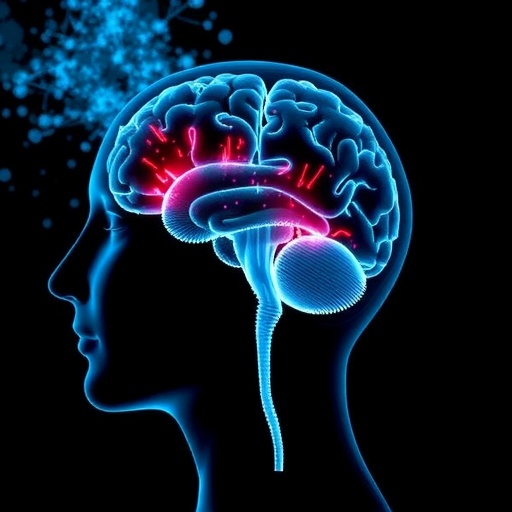A groundbreaking study from McGill University illuminates a previously underappreciated mechanism underlying hypertension, namely how a high-salt diet provokes inflammation in the brain, contributing directly to elevated blood pressure. This novel research challenges the traditional understanding that hypertension primarily originates in the kidneys or blood vessels, instead positioning the brain—and its immune cells—as pivotal players in the pathology of high blood pressure. The findings, published in the prestigious journal Neuron, open promising new avenues for therapeutic intervention targeting neuroimmune interactions.
Hypertension, affecting two-thirds of the population over 60 and accounting for around 10 million deaths worldwide annually, remains a significant global health challenge. Conventional treatments largely focus on regulating kidney function and vascular tone. Nevertheless, about a third of patients exhibit resistance to these standard therapies. This study provides compelling experimental evidence that the brain’s immune environment directly influences blood pressure regulation, offering a fresh perspective on why some cases of hypertension resist traditional approaches.
The researchers employed a high-salt dietary model in rats carefully designed to mimic human consumption patterns seen in diet staples such as processed meats, fast foods, and salty snacks. Rats received water with a 2% salt concentration, which corresponds to levels commonly observed in contemporary human diets. This approach allowed the team to observe pathophysiological changes without artificially exaggerated salt loads, enhancing the translational relevance of their findings.
.adsslot_pAPi1KEfam{width:728px !important;height:90px !important;}
@media(max-width:1199px){ .adsslot_pAPi1KEfam{width:468px !important;height:60px !important;}
}
@media(max-width:767px){ .adsslot_pAPi1KEfam{width:320px !important;height:50px !important;}
}
ADVERTISEMENT
Using advanced super-resolution microscopy paired with the IMARIS software for 3D reconstruction, the team captured detailed imagery of microglial cells—the brain’s resident immune population—actively engulfing fragments of other brain cells. These immune cells, depicted in vivid purple hues within the images, demonstrated heightened activity in response to the high-salt diet. In parallel, fragments of surrounding neural elements in green and orange highlighted ongoing structural remodeling, indicating a dynamic inflammatory response within key brain regions implicated in cardiovascular control.
The central mechanistic insight revealed by the study is that salt-driven activation of microglia induces inflammation in a discrete brain area responsible for the regulation of blood pressure. This neuroimmune activation correlates with an upsurge in vasopressin, a potent neurohormone that promotes vasoconstriction and water retention, both critical factors elevating systemic blood pressure. Through meticulous temporal and spatial mapping afforded by next-generation imaging methods, the researchers traced the sequence of cellular events linking dietary salt intake to hormonal changes and hypertensive outcomes.
One factor adding rigor and relevance to this study is the choice of animal model. Unlike mice, rats possess renal and fluid regulatory systems more akin to those of humans, thereby enhancing the likelihood that observed mechanisms will hold true in human physiology. This strategic selection strengthens the hypothesis that brain-centered inflammation can drive hypertension in human patients, particularly those unresponsive to classical kidney-targeted treatments.
Historically, the brain’s contribution to hypertension has been largely underestimated, primarily due to technical difficulties studying its complex neuroimmune microenvironment. The advent of high-resolution imaging and innovative analytical software now permits unprecedented visualization of dynamic cellular interactions. These methodological advances underpinned the study’s revelations and underscore how technological progress can catalyze paradigm shifts in biomedical science.
The implications of this research extend beyond hypertension alone. Neuroimmune crosstalk influenced by diet may participate in other cardiovascular or neurodegenerative disorders, suggesting a broader relevance of brain inflammation modulated by lifestyle factors. Future investigations, as planned by the researchers, will probe whether similar inflammatory pathways influence disparate forms of high blood pressure and related disease states.
Therapeutically, these findings herald an exciting prospect: developing drugs that can modulate microglial activation or vasopressin signaling directly in the brain. Such treatments would represent a novel category, complementing existing antihypertensive therapies focused on vascular and renal targets. This brain-centric approach could especially benefit patients with resistant hypertension who fail to respond adequately to current medication regimens.
This study’s publication in Neuron reflects the interdisciplinary collaboration among physiologists, neuroscientists, and immunologists, emphasizing the necessity of cross-field synergy to unravel complex systemic diseases. Support from key Canadian health research foundations has underscored the importance and promise of this investigation for public health.
As hypertension continues to be a silent but deadly condition worldwide, uncovering the brain’s role in its pathogenesis opens a vital new chapter in cardiovascular research. With further studies and translational efforts underway, these insights may soon translate into innovative diagnostics and therapeutics, ultimately reducing the burden of hypertension and saving millions of lives annually.
Subject of Research: Animals
Article Title: Microglia regulate neuronal activity via structural remodeling of astrocytes
News Publication Date: 19-Aug-2025
Web References: https://www.cell.com/neuron/abstract/S0896-6273(25)00551-3?_returnURL=https%3A%2F%2Flinkinghub.elsevier.com%2Fretrieve%2Fpii%2FS0896627325005513%3Fshowall%3Dtrue
References: Gu, N. et al. (2025). Microglia regulate neuronal activity via structural remodeling of astrocytes. Neuron. DOI: 10.1016/j.neuron.2025.07.024
Image Credits: Prager-Khoutorsky Lab
Keywords: Hypertension, Brain Inflammation, Microglia, Vasopressin, High-Salt Diet, Neuroimmune Interaction, Blood Pressure Regulation, Neurophysiology, Cardiovascular Disease
Tags: brain inflammation and blood pressuredietary salt intake and health riskshigh-salt diet health effectshypertension and neuroimmune interactionshypertension resistance to treatmentimmune cells and blood pressure regulationMcGill University hypertension studynovel research on hypertension mechanismsprocessed foods and hypertensionrole of brain in hypertensionsalt consumption and cardiovascular healththerapeutic interventions for high blood pressure





